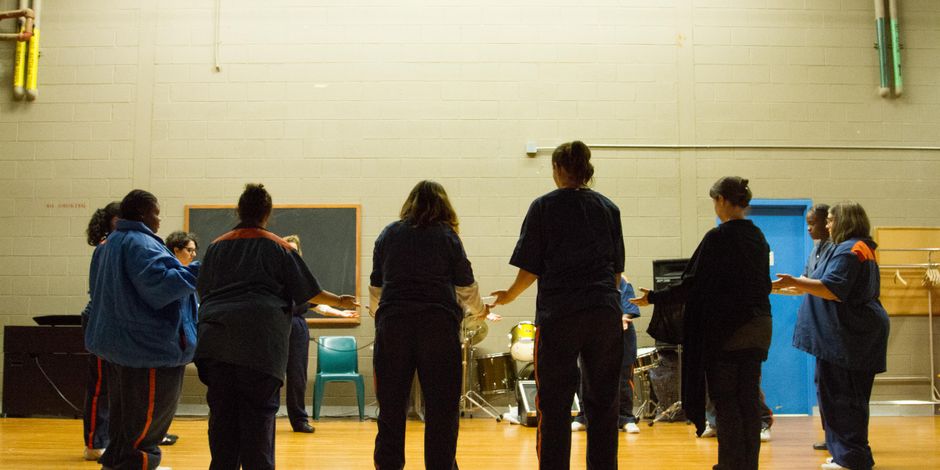Shakespeare in Prison

Shakespeare in Prison, Detroit Public Theatre’s signature community program, has been going gangbusters at Women’s Huron Valley Correctional Facility for six years! Our ensembles use Shakespeare to empower themselves, develop crucial skills, and smash society’s expectations. As one woman said, “Things I didn’t think were in me, I could see within myself and in the characters. Seeing things in different ways has helped me become a better woman. When I came here, I was really angry and didn’t care about anything but myself. Now I see things differently.”
We see people in their totality--not as defined by their worst mistakes. Incarcerated people are disconnected from their humanity and that of others. Labeled by their crimes and prison ID numbers, most have survived trauma and addiction. They have been disempowered; made to feel worthless, stupid; shells of who they once were or could have been. The SIP experience profoundly alters this. In our ensembles, people find comrades and a safe space; their ideas are valued; they improve communication; and they accomplish something totally radical.
More than 90% of incarcerated people will go home. The values and skills learned in SIP help ensemble members constructively reintegrate into society, making them less likely to re-offend. Several alumni are pursuing goals developed in SIP; we get glowing reports about reconnecting with family and having real jobs--things they never thought possible. Those still in prison use what they’ve learned not only for their own benefit, but to positively affect their community.
The WHV ensemble works for 9 months, performing at season’s end. Our pilot at Parnall Correctional Facility, a men’s prison in Jackson, has so far comprised a two-week intensive and a 12-week workshop. Ensemble members, audiences, and prison staff are extremely excited and supportive. A second 12-week workshop is underway; this fall, we’ll modify the program to be even more impactful in a 30-week format.